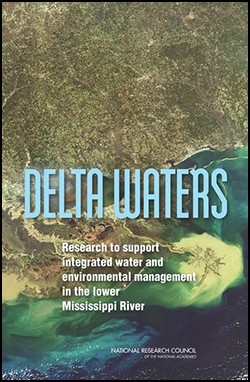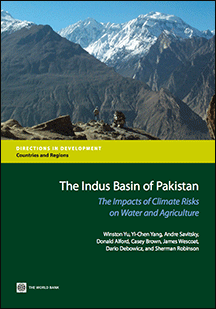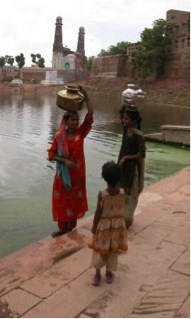| ETHICS OF INTERVENTION: RECONSTRUCTION IN THE MIDDLE EAST MULTI-YEAR RESEARCH PROJECT AT AKPIA@MIT |  |
|
In December 2016, the Aga Khan Program for Islamic Architecture (AKPIA), with support from Dean Hashim Sarkis, launched a research project under the title Ethics of Intervention: Architecture of Refugees and Reconstruction in the Middle East. The formation of this research group was of course motivated by the tragedies still evolving in many countries in North Africa and the Middle East. Many international relief organizations, governments, philanthropic foundations, and academic institutions have established programs to deal with the various aspects of destruction and displacement. Relief for the refugees, reconstruction, and heritage preservation are among the most pressing and most discussed issues. | |
AKPIA@MIT COLLABORATION WITH ACADEMIES OF SCIENCE & ENVIRONMENTAL DESIGN: WATER, HAZARDS, CLIMATE
 | Delta Waters:
Research to Support Integrated Water and Environmental Management in the Lower Mississippi River James Wescoat, Study Committe Chair (National Academy Press, 2013) The Water Institute of the Gulf is a not-for-profit, independent research institute dedicated to advancing the understanding of coastal, deltaic, river and water resource systems, both within the Gulf Coast and around the world. Their mission supports the practical application of innovative science and engineering, providing solutions that benefit society. Those who make policy for coastal and deltaic systems, as well as managers of natural resources, need high-quality science and engineering to guide their decisions. The Water Institute of the Gulf began operations in 2012 to address exactly this sort of challenge. Delta Waters offers advice to The Water Institute of the Gulf that it might use as part of its strategic planning process. This report focuses on strategic research to support integrated water resources management in the lower Mississippi River delta and includes international comparative assessments. The recommendations of Delta Waters promote a human and environmental systems approach to scientific research that supports integrated water and environmental resources management in the lower Mississippi River and delta, and offers ideas regarding comparative assessments with other, relevant deltaic regions around the world. This report provides input for research into common deltaic problems and challenges, identifies strategic research for The Water Institute of the Gulf, and suggests ways that the organization can utilize knowledge gained from the lower Mississippi River and delta system in developing a research program to support water management decisions in other large river/delta complexes. |
|
Research on Climate, Water & Agriculture in the Indus Basin of Pakistan – 2012-2010 The Indus Basin of Pakistan The Impacts of Climate Risks on Water and Agriculture This study by the World Bank and Water and Power Development Authority, Pakistan, updated the Indus Basin Model and used it to assess scenarios of climate change, water use, and agricultural development in Pakistan. The study identified key hydroclimatic sentivities as well as robust aspects of the Indus Basin Irrigation System and climate adaptation scenarios. |  |
 | APA, ASLA, ASID, and other design organizations recently joined to create a National Academy of Environmental Design (NAED). James Wescoat co-directs NAED’s Research program with Dean Thomas Fisher of the University of Minnesota. As a member of the U.S. National Academies’ National Research Council (NRC) Wescoat and AKPIA@MIT contributed to the following recent research activities:
|
AKPIA@MIT COLLABORATION WITH THE AGA KHAN DEVELOPMENT NETWORK (AKDN)
|
The Aga Khan Development Network (AKDN) has an expanding array of Built Environment research initiatives. Recent and current involvement of AKPIA@MIT faculty and students include:
|


|
AKPIA@MIT COLLABORATION WITH MIT ENERGY INITIATIVE, TATA FELLOWS, AND OTHER
  |
MIT has Institute-wide research initiatives to which AKPIA@MIT is currently contributing. Examples include:
|